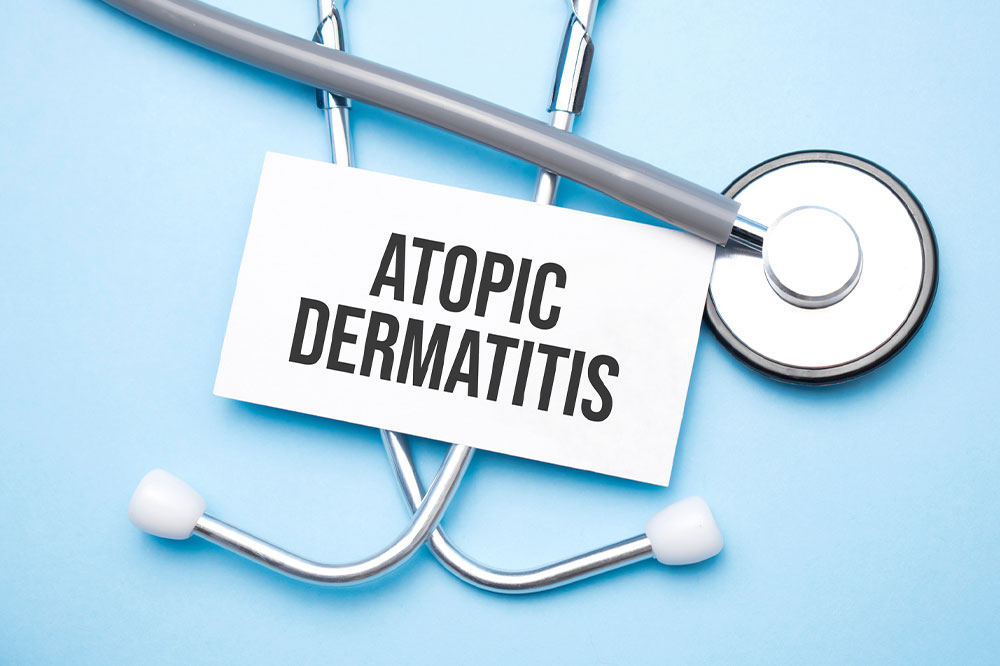
Atopic dermatitis home remedies, management options, and best foods
Atopic dermatitis is a health condition wherein individuals suffer skin inflammation. This causes their skin to be perpetually dry, itchy and inflamed. People with this condition are vulnerable to hay fever, food allergies, and asthma. While it is not curable, atopic dermatitis, also called eczema, treatments can improve the quality of life for individuals living with this condition. Below you can find out about atopic dermatitis remedies, the best foods, and proven treatment avenues:
Home remedies
One can soothe themselves by using the following products or home remedies on their skin and reduce the likelihood of flare-ups:
Applying aloe vera gel
Aloe vera gel is one of the best natural products to soothe eczema. It has several positive effects on one’s skin, such as its ability to fight and eliminate the bacterial matter that triggers eczema-based skin itching and irritation, its reinforcing properties for one’s immune system, its ability to heal wounds quickly, and its strong antimicrobial properties. Most importantly, aloe vera fights the viral and bacterial particles that cause skin infections and further aggravate skin itching and irritation in people with active atopic dermatitis.
Applying diluted apple cider vinegar
Apple cider vinegar is highly acidic. Therefore, it is important to dilute it with water before using to avoid skin burns. Applying diluted apple cider vinegar brings down the skin’s acidity levels. The National Eczema Association (NEA) has reported that diluted apple cider vinegar is an effective way to fight and suppress the symptoms of atopic dermatitis. Acidity in the skin plays a part in worsening the symptoms of this health condition.
Apart from these two solutions, one can also use atopic dermatitis remedies such as applying bleach while bathing, colloidal oatmeal, coconut oil, and honey, and also bathing regularly to keep the skin relatively clear of pathogens. Of course, one should consult a healthcare professional before using these home remedies just to be sure and safe.
Atopic dermatitis treatments
Healthcare professionals turn to many alternatives and therapies to keep the health condition’s symptoms away for longer. Some such therapies include:
Light therapy
In this treatment, also known as phototherapy, doctors expose their clients’ skin areas affected by atopic dermatitis flare-ups to controlled amounts of sunlight. This treatment makes calibrated use of ultraviolet A (UVA) and narrow-band ultraviolet B (UVB) to treat the skin-based symptoms caused by eczema. Generally, this treatment is considered for individuals who do not get better even after topical treatment. Light therapy is also helpful for individuals who suffer sudden flare-ups after other treatments.
Counseling
Atopic dermatitis is characterized by scales and rashes on one’s skin. In many instances, these marks bring a great sense of embarrassment to people. Counseling helps such individuals live easier with their health condition. More importantly, counseling reduces the stress factor associated with eczema. Stress is one of the prime causes of eczema flare-ups.
Relaxation, behavior modification, and biofeedback
A major problem atopic dermatitis brings is the habit of scratching the skin vigorously. Individuals with this condition feel a constant, insatiable itch on various zones of their skin. Scratching the skin (especially with long nails) worsens the symptoms. Therefore, relaxation exercises, biofeedback, and behavior modification therapy help to calm one’s nerves and actions and keep the habit of scratching as far away as possible.
Foods to eat for atopic dermatitis
Certain foods help improve one’s health and skin condition debilitated by atopic dermatitis. Some such foods are:
Bell peppers
Along with oranges, strawberries, cauliflower, mangoes, and pineapples, these foods are rich in vitamin C, a key anti-inflammatory element that keeps eczema symptoms at bay.
Bananas
High-potassium foods also reduce eczema symptoms by directly getting to the root of skin inflammation and fighting the core problems that aggravate eczema symptoms.
Green onions
Some foods are ideal for skin protection and epidermal building. Green onions, beef or chicken broth, and oats fall under this category of foods.




